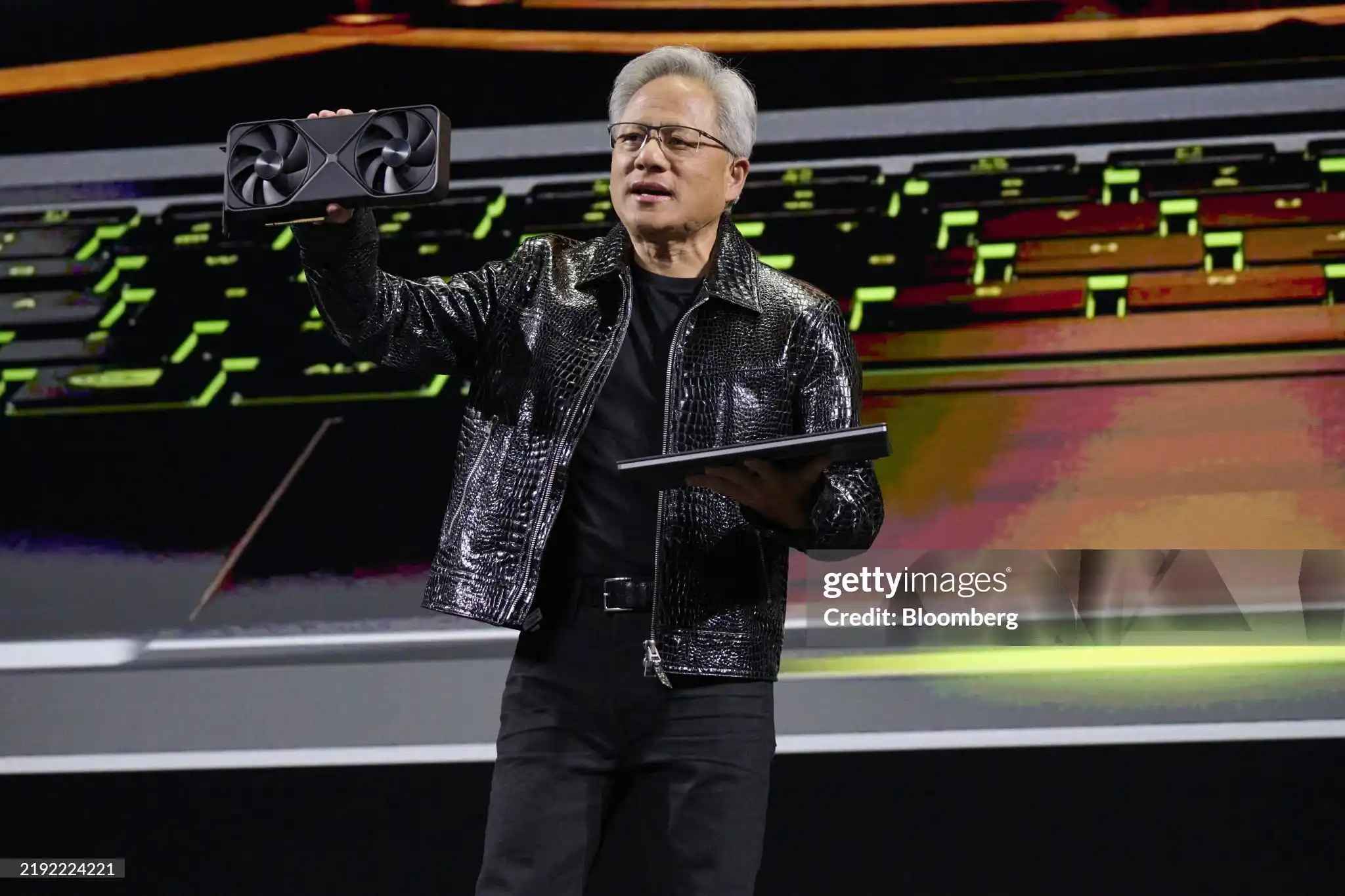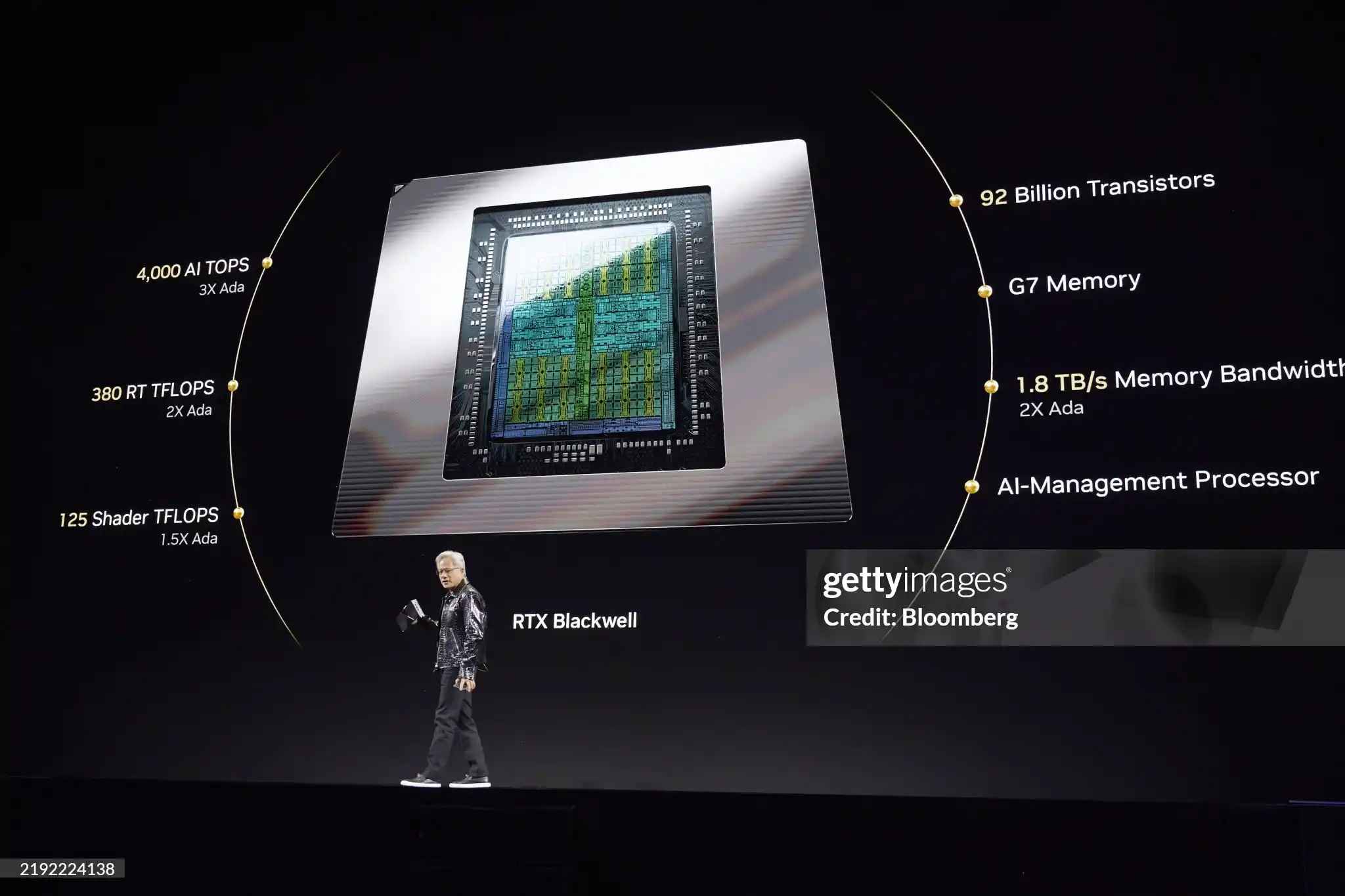NVIDIA GeForce RTX 5070: Specs, Price & Where to Buy | RTX 50 Series
Updated on : 08 January, 2025

Image Source: Getty Images
Introduction
The NVIDIA GeForce RTX 50 series, led by the RTX 5070, marks a groundbreaking advancement in graphics technology for gamers and professionals alike. Built on the Ada Lovelace architecture, the RTX 5070 promises exceptional performance, power efficiency, and AI-driven features. This blog delves into its specifications, compares it with previous generations, and explores its transformative impact on gaming and creative workflows. Join us as we uncover how NVIDIA’s latest innovation redefines the future of high-performance graphics in 2025 and beyond.
Overview of RTX-5070 Graphics Card

Image Source: Getty Images
The NVIDIA GeForce RTX 5070 graphics card is a pivotal addition to the RTX 50 series, designed to deliver exceptional performance for both gaming and professional applications. Built on the advanced Ada Lovelace architecture, the RTX 5070 features a significant number of CUDA cores, enabling high parallel processing capabilities that enhance frame rates and rendering speeds.
With dedicated hardware for real-time ray tracing and AI-driven tasks, the RTX 5070 excels in providing realistic graphics and improved performance in supported games. It is expected to come equipped with GDDR6X memory, allowing for high-resolution textures and complex scenes without performance degradation.
In terms of performance metrics, early benchmarks indicate that the RTX 5070 will outperform its predecessors, such as the RTX 4070, particularly in 1440p gaming scenarios. The anticipated price range of $499-$599 positions it competitively within the market, appealing to gamers and content creators alike. Overall, the RTX 5070 aims to cater to a diverse audience, promising cutting-edge technology that enhances both gaming experiences and creative workflows.
Performance Metrics

Image Source: Getty Images
The performance metrics of the NVIDIA GeForce RTX 5070 graphics card are anticipated to set new standards in the gaming and professional graphics landscape. Built on the Ada Lovelace architecture, the RTX 5070 is expected to feature approximately 6,000 CUDA cores, significantly enhancing its parallel processing capabilities. This increase in core count allows for improved frame rates and rendering speeds, particularly in demanding gaming scenarios.
In terms of real-world performance, early benchmarks suggest that the RTX 5070 will achieve over 100 frames per second (FPS) at high settings in 1440p resolution across most AAA titles. This positions it as a strong contender against both the previous generation RTX 4070 and the high-end RTX 4090. Additionally, the card's support for advanced ray tracing and AI-driven features, such as DLSS (Deep Learning Super Sampling), further enhances its graphical fidelity while maintaining high performance.
Power efficiency is another key aspect, with expectations of lower power consumption compared to its predecessors, allowing users to enjoy high-performance gaming without excessive energy costs. Overall, the RTX 5070 is set to deliver a compelling combination of performance, efficiency, and cutting-edge technology for gamers and content creators alike.
Popular Blogs
Comparison among RTX-5070, RTX-4090 and RTX-4070
| Graphics Card | RTX 5070 | RTX 4090 | RTX 4070 |
|---|---|---|---|
| Architecture | GB205 | AD102 | AD104 |
| Process Node | TSMC 4NP | TSMC 4N | TSMC 4N |
| Transistors (Billion) | ? | 76.3 | 32 |
| Die size (mm^2) | ? | 608.4 | 294.5 |
| SMs | 48 | 128 | 46 |
| GPU Shaders | 6144 | 16384 | 5888 |
| Tensor Cores | 192 | 512 | 184 |
| RT Cores | 48 | 128 | 46 |
| Boost Clock (MHz) | 2512 | 2520 | 2475 |
| VRAM Speed (Gbps) | 28 | 21 | 21 |
| VRAM (GB) | 12 | 24 | 12 |
| VRAM Bus Width | 192 | 384 | 192 |
| L2 Cache | 48? | 72 | 36 |
| Render Output Units | 64? | 176 | 64 |
| Texture Mapping Units | 192 | 512 | 184 |
| TFLOPS FP32 (Boost) | 30.9 | 82.6 | 29.1 |
| TFLOPS FP16 (INT8 TOPS) | 494 (988) | 661 (1321) | 233 (466) |
| Bandwidth (GB/s) | 672 | 1008 | 504 |
| TBP (watts) | 250 | 450 | 200 |
| Launch Date | Feb 2025? | Oct 2022 | Apr 2023 |
| Launch Price | $549 | $1,599 | $599 |
Price Expectations
The price expectations for the NVIDIA GeForce RTX 5070 graphics card are projected to vary globally, reflecting regional market dynamics and demand. In the United States, the anticipated price range is around $499 to $599, making it competitive within the mid-to-high-end graphics card market. In Europe, prices may be slightly higher due to taxes and import duties, potentially reaching €549 to €649. In Asia, particularly in countries like India, the expected pricing could range from ₹45,000 to ₹55,000, depending on local tariffs and distribution costs. Overall, the RTX 5070 aims to provide value for gamers and professionals alike while maintaining affordability in its segment.
Where to Buy

Image Source: Getty Images
Currently, the NVIDIA GeForce RTX 5070 graphics card can be purchased from various retailers worldwide. In the United States, major online platforms like Amazon, Newegg, and Best Buy are expected to stock the card upon its release. In Europe, retailers such as Scan, Overclockers UK, and MediaMarkt are likely candidates for availability. In Asia, particularly in India, customers can look for the RTX 5070 at Flipkart, Amazon India, and local electronics stores. It's advisable to keep an eye on these platforms for pre-order options and availability updates as the launch date approaches.
Benchmark Expectations
Benchmark expectations for the NVIDIA GeForce RTX 5070 graphics card are generating significant excitement among gamers and professionals alike. Early performance assessments suggest that the RTX 5070 will achieve impressive results across various gaming and content creation scenarios.
In gaming, benchmarks are anticipated to show the RTX 5070 delivering over 100 frames per second (FPS) in popular AAA titles at high settings in 1440p resolution, positioning it competitively against both the RTX 4070 and the high-end RTX 4090. Additionally, the card is expected to excel in ray tracing performance, offering enhanced visual fidelity without sacrificing frame rates.
For content creators, the RTX 5070 is likely to demonstrate substantial improvements in rendering times and overall efficiency in software applications like Blender and Adobe Premiere, thanks to its increased CUDA core count and memory bandwidth. This performance boost will be particularly beneficial for tasks that require real-time processing and high-resolution assets.
Overall, the RTX 5070 is set to redefine performance benchmarks in its class, making it an attractive option for both gamers seeking high-performance gameplay and professionals looking for powerful rendering capabilities.
Target Audience
The target audience for the NVIDIA GeForce RTX 5070 graphics card is diverse, encompassing several key groups.
- Gamers: Enthusiasts seeking high-performance gaming experiences at 1440p resolution will find the RTX 5070 appealing due to its expected high frame rates and advanced graphical features.
- Content Creators: Professionals in video editing, 3D rendering, and graphic design will benefit from the card’s powerful processing capabilities and support for AI-driven applications, enhancing productivity and efficiency.
- Tech Enthusiasts: Individuals who prioritize cutting-edge technology and are eager to leverage the latest advancements in graphics performance for both gaming and creative tasks.
- Developers: Those working in game development or software engineering will appreciate the RTX 5070's capabilities for real-time rendering and simulation, making it a valuable tool for creating immersive experiences.
Overall, the RTX 5070 is designed to cater to a broad audience, balancing performance and price to meet the needs of gamers and professionals alike.
NVIDIA's Vision of RTX for AI-assisted creative workflows

Image Source: Getty Images
NVIDIA envisions the RTX series, particularly the RTX 5070, as a cornerstone for AI-assisted creative workflows, aiming to integrate advanced graphics capabilities with artificial intelligence to enhance productivity in creative industries. The RTX 5070 is designed to leverage AI-driven features like DLSS (Deep Learning Super Sampling), which optimizes rendering performance while maintaining high image quality. This allows creators to work more efficiently, reducing rendering times and enabling real-time feedback during the creative process.
Moreover, NVIDIA's focus on AI extends to tools and software that facilitate collaboration and innovation among artists, designers, and developers. By incorporating AI into workflows, users can automate repetitive tasks, analyze large datasets for insights, and generate content more intuitively. This synergy between powerful graphics processing and AI technology positions the RTX 5070 not just as a gaming GPU but as an essential tool for professionals in fields such as video production, 3D modeling, and graphic design.
Overall, NVIDIA's vision for the RTX series emphasizes enhancing creative potential through AI integration, ensuring that users can harness the full power of their hardware to produce groundbreaking work in an increasingly digital landscape.
Conclusion
The NVIDIA GeForce RTX 5070 graphics card stands poised to make a significant impact on both gaming and professional landscapes. With its advanced features, competitive pricing, and NVIDIA's commitment to AI-driven workflows, it is set to cater to a diverse audience. As we move further into 2025, the excitement surrounding this graphics card will only grow as more benchmarks are released and users begin to experience its capabilities firsthand. The future looks bright for gamers and creatives alike with the introduction of the RTX 50 series.
















